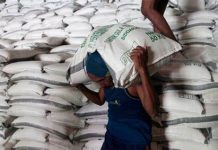As the world continues to evolve and industries become more advanced, the need for industrialization has become even more crucial. Agro-processing, for example, should be at the forefront of this movement.
This sector, which involves the conversion of raw agricultural products into value-added goods, has the potential to drive economic growth and development in many countries. Agro-processing not only adds value to agricultural products but also creates job opportunities, boosts exports, and contributes to overall economic stability. Therefore, it should be a top priority for countries looking to industrialize and improve their economies.
The potential for job creation makes agro-processing a top priority. According to the Food and Agriculture Organization (FAO), the agro-processing industry has the potential to create employment for both skilled and unskilled labor, especially in rural areas where job opportunities are scarce. This can help alleviate poverty and improve the standard of living for locals. Additionally, agro-processing has a significant impact on exports. By adding value to raw agricultural products, countries can increase their production capacity and meet the demands of both domestic and international markets.
This not only generates foreign exchange but also establishes a positive trade balance for the country. As a result, the economy becomes more stable and less dependent on a single sector, such as agriculture. Additionally, agro-pro has a ripple effect on other industries. The growth of this sector leads to the development of supporting industries, such as packaging, transportation, and marketing.
This creates a multiplier effect, creating more job opportunities and boosting economic growth. Moreover, agro-processing is a sustainable industry. Agro-processing plays a crucial role in preventing food waste as the world grapples with issues of food security and sustainability. By preserving and transforming raw materials into value-added products, agro-processing reduces post-harvest losses and increases product shelf life.
This, in turn, reduces food shortages and promotes food security. Furthermore, agro-processing contributes to rural development. As most raw materials for this industry come from rural areas, it encourages the development of infrastructure such as roads and storage facilities. This, in turn, improves connectivity and accessibility, making it easier to transport goods to urban markets. It also contributes to the overall development of rural areas, improving the local communities’ living conditions.
Agro-processing should be a top priority for countries looking to industrialize. We should not overlook its crucial role in job creation, export growth, and sustainable development. Governments should invest in this industry by providing favorable policies, incentives, and infrastructure to encourage its growth. By doing so, countries can achieve both economic and social development and pave the way for a more prosperous future.
























